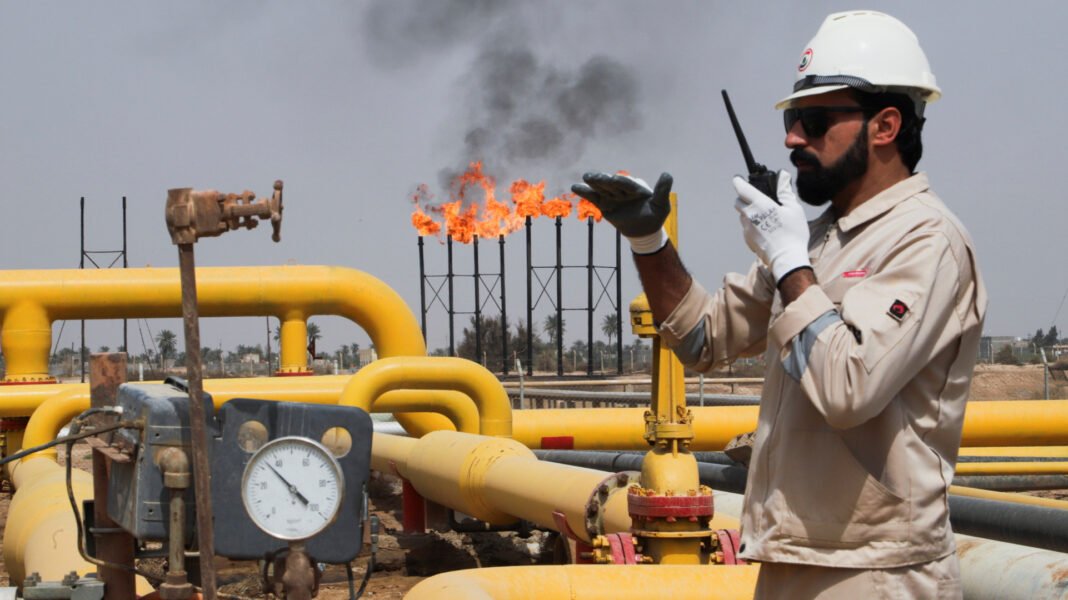Basrah crude prices declined, mirroring the downturn in global oil markets as traders reacted to softening demand signals and persistent supply concerns. Both Basrah Heavy and Basrah Medium registered losses, extending a three-day slide in oil prices that reflected mounting uncertainty across global energy markets.
According to official market data, Basrah Heavy crude prices declined by 95 cents, or 1.45%, to $64.73 per barrel, while Basrah Medium dropped by the same amount, down 1.41%, to $66.58 per barrel. These declines followed a brief rally early in the session, when crude prices opened higher but quickly reversed as investor confidence waned.
Analysts attributed the downturn to doubts over the effectiveness of Western sanctions on Russia and anticipated higher crude output from OPEC+ producers. Slower economic growth in key consuming regions, especially in Asia and Europe, is also pressuring the market, as refiners cut runs due to weaker margins and uncertain demand.
Brent and West Texas Intermediate (WTI) benchmarks also dropped, reinforcing the downward trend. Traders are watching upcoming OPEC+ policy meetings for signs of coordinated action to stabilize prices amid global oversupply fears.
For Iraq, one of the world’s top oil exporters, the decline in Basrah crude prices comes as the government works to maintain consistent export levels and sustain revenue flows. The Ministry of Oil has continued investing in export infrastructure and production optimization to support the national budget, which relies heavily on oil income.
Despite short-term volatility, Iraq remains committed to its OPEC+ obligations while pursuing strategies to enhance competitiveness in Asian markets, where Basrah crude is a key supplier. The ministry reaffirmed that it would continue monitoring market shifts and adjusting export plans to maintain price stability and safeguard national interests.


